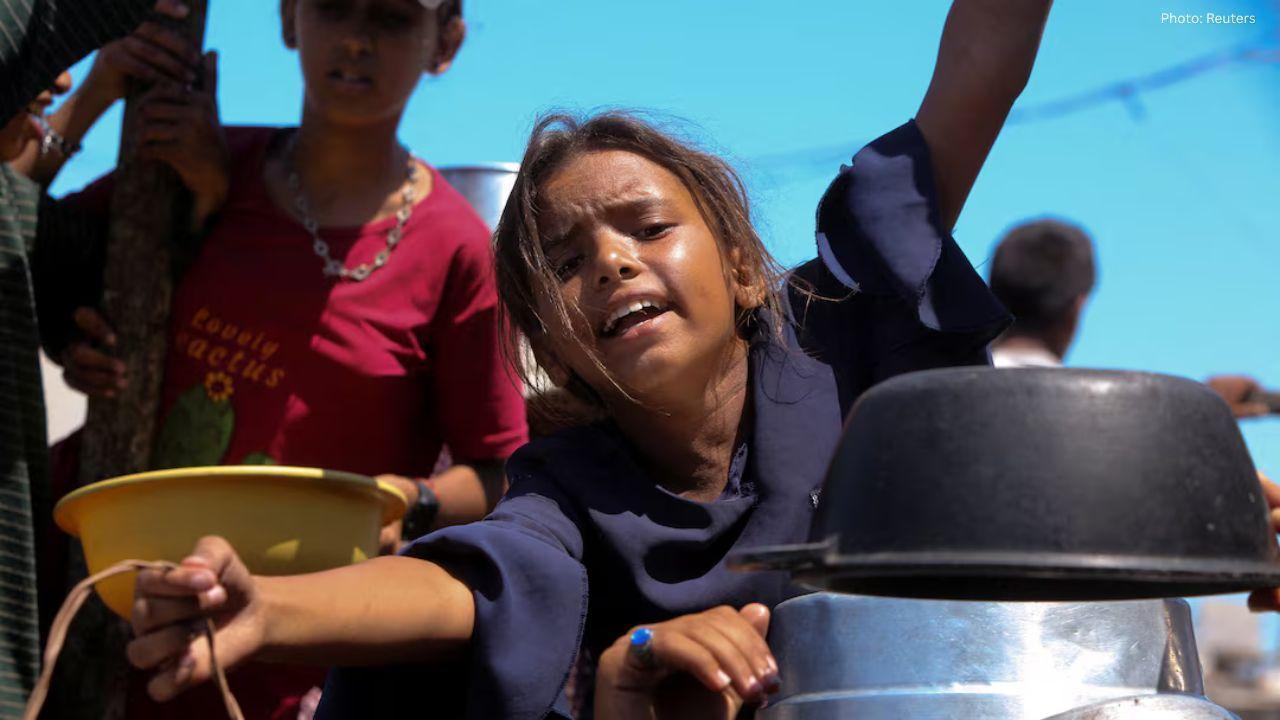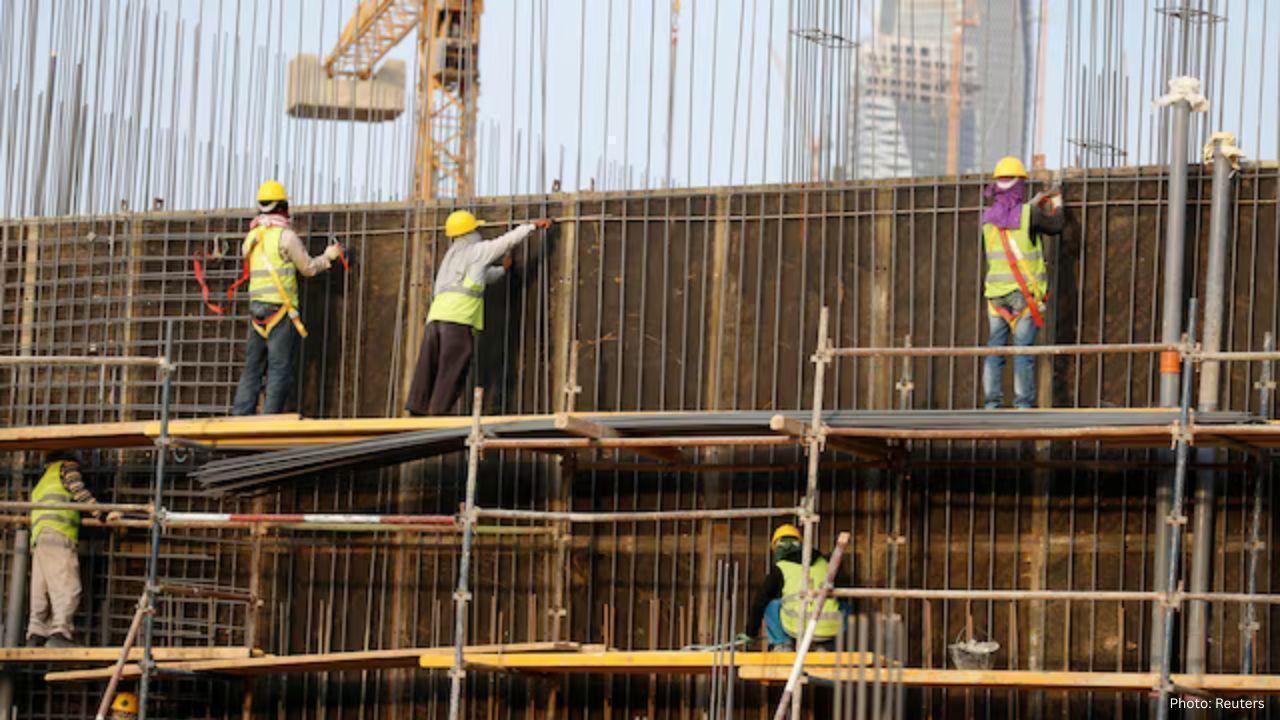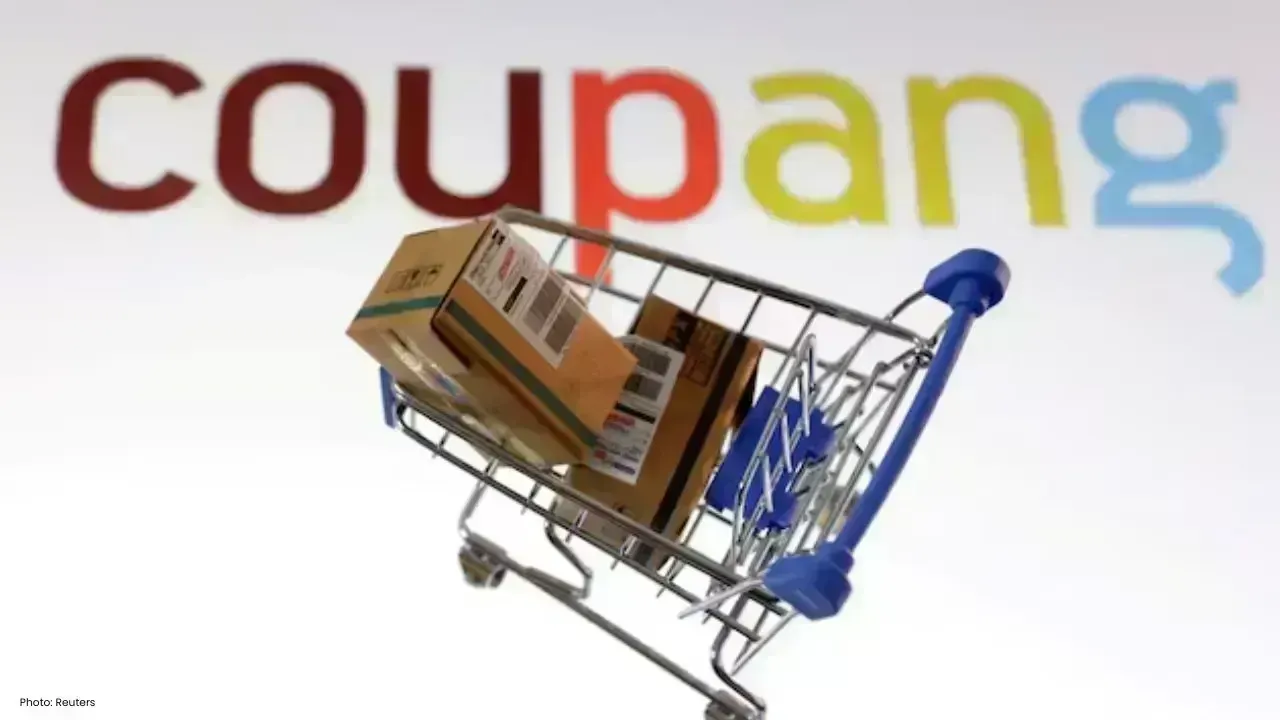You have not yet added any article to your bookmarks!

Join 10k+ people to get notified about new posts, news and tips.
Do not worry we don't spam!

Post by : Anis Farhan
Inflation — a word that often seems confined to economic reports or financial news — has quietly become part of everyday conversation around the world. From rising grocery prices to ballooning rent, and from costlier transport fares to expensive coffee, inflation has moved beyond being a technical term and is now a lived reality for billions of people. Over the last few years, households in nearly every country have felt the pinch as the cost of basic goods and services has increased at a pace far outstripping wage growth. This shift has altered spending habits, forced lifestyle adjustments, and in many cases, deepened financial stress for ordinary consumers.
While inflation isn’t a new phenomenon, the pace and scope of recent price increases are historically significant. Driven by a combination of global supply chain disruptions, geopolitical tensions, energy market volatility, and post-pandemic economic adjustments, the inflationary wave has affected both developed and developing economies. For everyday consumers, this translates into one undeniable fact — money doesn’t go as far as it used to.
Over the past three years, inflation rates have soared to multi-decade highs in several countries. In the United States, the inflation rate peaked at levels unseen since the early 1980s, prompting the Federal Reserve to take aggressive interest rate measures. In the European Union, soaring energy costs and supply chain issues drove prices upward, while in emerging economies such as Argentina, Turkey, and parts of Africa, inflation spiraled into double or even triple digits.
The causes of this surge are complex and interconnected. The pandemic years brought unprecedented disruptions to manufacturing, logistics, and labor markets, leading to shortages that pushed prices higher. As economies reopened, pent-up consumer demand clashed with constrained supply, further driving inflation. Add to this the Russia–Ukraine conflict, which severely disrupted global food and energy supplies, and the stage was set for sustained price hikes.
But while economists analyze data and central banks adjust monetary policies, the average consumer experiences inflation in the simplest of ways — noticing that their paycheck covers less than it did before.
For most people, inflation is not about economic theory but about how far their money stretches at the supermarket, the fuel station, or when paying utility bills. In many countries, grocery bills have risen by 15–30% within just a couple of years. Essential staples like bread, milk, cooking oil, and rice are now noticeably more expensive, and for families living paycheck to paycheck, such increases can mean tough trade-offs.
In the housing sector, rents have climbed sharply in many urban areas, and mortgage rates have increased alongside interest rate hikes. This makes home ownership less attainable for younger generations, while renters face the challenge of negotiating higher monthly payments or being forced to relocate to less expensive neighborhoods.
Transportation costs have also surged, from fuel prices to ride-hailing services. Commuters who once drove to work daily may now opt for public transport, while others work from home more frequently to save on travel expenses. Even leisure activities — dining out, going to the movies, or taking vacations — have become more costly, forcing many households to cut back on discretionary spending.
While inflation is a global trend, its effects vary depending on the region and the structure of each economy.
Developed Economies: In countries such as the U.S., UK, Japan, and Germany, inflation rates are lower compared to some developing nations but still high by historical standards. Governments have introduced subsidies, fuel tax cuts, and social benefits to ease the burden on citizens, but wage growth often lags behind price hikes.
Emerging Markets: In nations like Nigeria, Argentina, and Sri Lanka, inflation often reaches double digits or more, dramatically eroding purchasing power. In such contexts, the price of food and fuel can become a matter of survival rather than convenience, pushing more households below the poverty line.
Resource-Dependent Economies: Countries heavily reliant on imported goods or fuel are particularly vulnerable. Even minor disruptions in supply chains can trigger substantial price increases, as seen in smaller island nations dependent on shipping for most of their essential goods.
The sustained period of high inflation has forced a shift in how people spend and save. Shoppers are increasingly turning to discount stores, buying in bulk, and choosing generic brands over premium products. Price comparison apps and loyalty programs have seen a surge in usage, as consumers look for every possible way to stretch their money.
Meal planning has become a key strategy for many families, helping reduce waste and control spending. Similarly, second-hand marketplaces for clothes, electronics, and even furniture are thriving as people seek more affordable options.
In some regions, barter systems and community exchange networks have gained popularity again, with neighbors swapping goods and services directly without cash changing hands. These changes reflect a broader adaptation to economic uncertainty, where resourcefulness is as valuable as income.
One of the most significant side effects of inflation is its impact on personal savings and debt. Savings accounts lose real value when inflation outpaces interest rates, meaning that even diligent savers see their purchasing power erode over time.
At the same time, higher interest rates — a common tool used by central banks to combat inflation — make borrowing more expensive. This affects everything from credit card balances to car loans, mortgages, and business financing. For those already in debt, repayment becomes harder, and for potential borrowers, the cost of taking on new debt may be prohibitive.
This double squeeze — diminished savings value and higher borrowing costs — can create long-term financial strain, especially for younger generations who are still building wealth.
Governments and central banks worldwide have taken various steps to address inflation. The most common approach is raising interest rates, which slows borrowing and spending to cool demand. However, this also risks slowing economic growth and triggering recessions if implemented too aggressively.
Some governments have implemented targeted subsidies or tax relief for essential goods and services. Others have increased social assistance payments to help low-income households cope with rising prices. For example, several European countries capped energy prices during the winter to protect households from extreme fuel cost spikes.
However, these measures often provide temporary relief rather than a permanent solution. The structural causes of inflation — from supply chain vulnerabilities to energy market dependence — require long-term investment and policy reform.
Beyond the financial impact, inflation has a psychological effect on consumers. When people feel that their income cannot keep up with prices, it breeds anxiety, frustration, and a sense of instability.
This economic uncertainty can influence life decisions — delaying marriage, postponing having children, avoiding major purchases, or canceling travel plans. Businesses also feel this uncertainty, as lower consumer confidence leads to reduced spending, creating a feedback loop that slows economic recovery.
Psychologists note that prolonged financial stress can affect mental health, leading to burnout, depression, and strained relationships. Thus, inflation is not only an economic challenge but also a societal one, affecting the emotional well-being of millions.
While inflationary periods eventually subside, many economists warn that prices are unlikely to return to pre-pandemic levels. This means that consumers may need to adapt to a “new normal” where budgeting, cost-conscious decision-making, and flexible lifestyle adjustments become standard practice.
Practical steps for households include:
Tracking expenses closely to identify unnecessary spending.
Building emergency savings to cushion against future shocks.
Diversifying income sources, such as freelance work or side businesses.
Investing in skills that increase job security and earning potential.
Choosing long-lasting, quality products over cheaper, disposable items.
The goal is not just to survive inflation but to develop financial resilience that can withstand future economic challenges.
Inflation’s trajectory will depend on multiple factors — from global geopolitical stability to energy prices, technological advancements, and climate-related disruptions to food production. Central banks face the delicate task of controlling inflation without triggering deep recessions, while policymakers must balance short-term relief with long-term economic health.
For consumers, the immediate focus remains on navigating the current environment — making smart financial decisions, adjusting expectations, and finding ways to maintain quality of life despite rising costs. While inflation may feel like an unstoppable force, history shows that economies eventually stabilize, and households that adapt early are better positioned to thrive when conditions improve.
The information presented in this article is for general informational purposes only and is based on publicly available sources at the time of writing. While every effort has been made to ensure accuracy and relevance, the author and publisher do not guarantee the completeness, timeliness, or reliability of the information. Readers are encouraged to verify facts independently and consult qualified professionals before making any business, financial, or investment decisions. The views expressed in the article are solely those of the author and do not necessarily reflect the opinions of the publisher.










Two Telangana Women Die in California Road Accident, Families Seek Help
Two Telangana women pursuing Master's in the US died in a tragic California crash. Families urge gov

Ranveer Singh’s Dhurandhar Roars Past ₹1100 Cr Worldwide
Ranveer Singh’s Dhurandhar stays unstoppable in week four, crossing ₹1100 crore globally and overtak

Asian Stocks Surge as Dollar Dips, Silver Hits $80 Amid Rate Cut Hopes
Asian markets rally to six-week highs while silver breaks $80, driven by Federal Reserve rate cut ex

Balendra Shah Joins Rastriya Swatantra Party Ahead of Nepal Polls
Kathmandu Mayor Balendra Shah allies with Rastriya Swatantra Party, led by Rabi Lamichhane, to chall

Australia launches review of law enforcement after Bondi shooting
Australia begins an independent review of law enforcement actions and laws after the Bondi mass shoo

Akshaye Khanna exits Drishyam 3; Jaideep Ahlawat steps in fast
Producer confirms Jaideep Ahlawat replaces Akshaye Khanna in Drishyam 3 after actor’s sudden exit ov